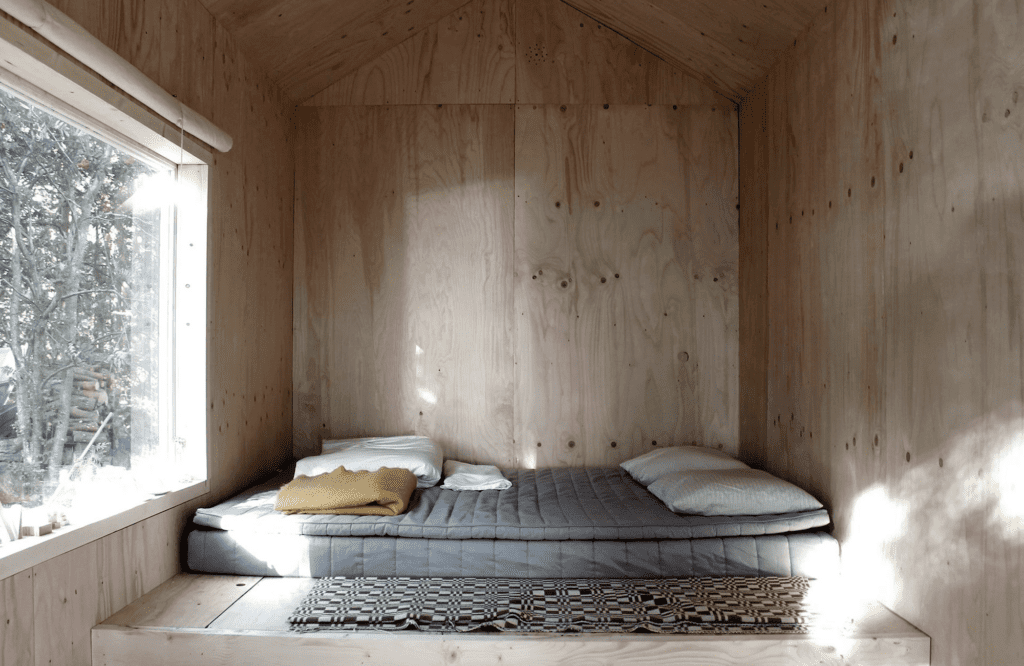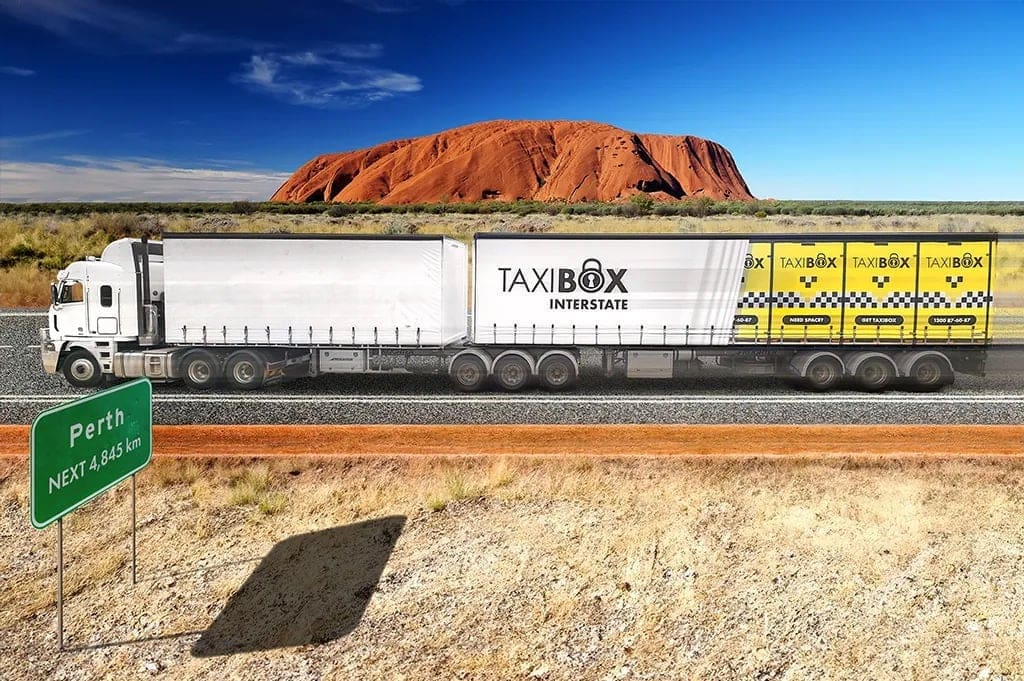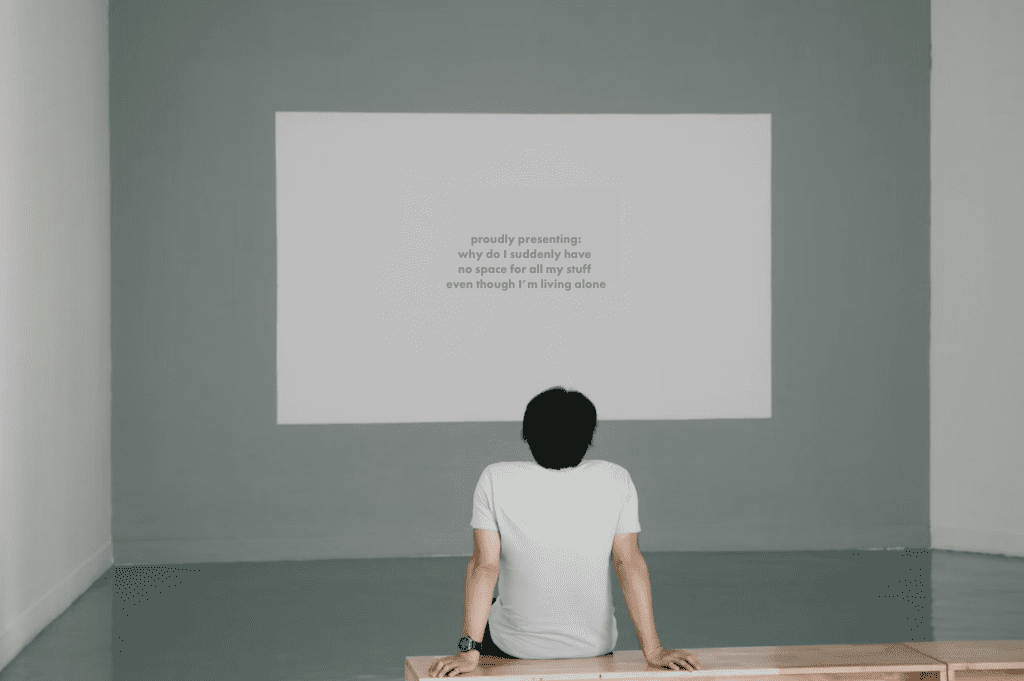You don’t like clutter, your roommates don’t like clutter, but everyone seems to like shoes that clash with everything, empty pet-nat bottles with cool branding, and kids’ toys that were out of rotation within a week. We’re all drowning in clutter, so it comes to no surprise you want to declutter your mind. Over a quarter of Australians feel that clutter creates stress and anxiety in their lives.
Clutter is messy and always in the way, even when it’s out of the way – in the room you never use, or on that chair you never sit on (because it’s covered in stuff). Clutter gets in the way when you need to take care of yourself and eventually, it takes a toll on your health.
Australians are trusting their guts, and their guts are right this time. We spoke to international author and simplicity expert Bronwen Sciortino to find out more about mess and how it manifests as stress (and how we can kill two birds with one stone).
Your Mess is Messing with You (More than You Think)
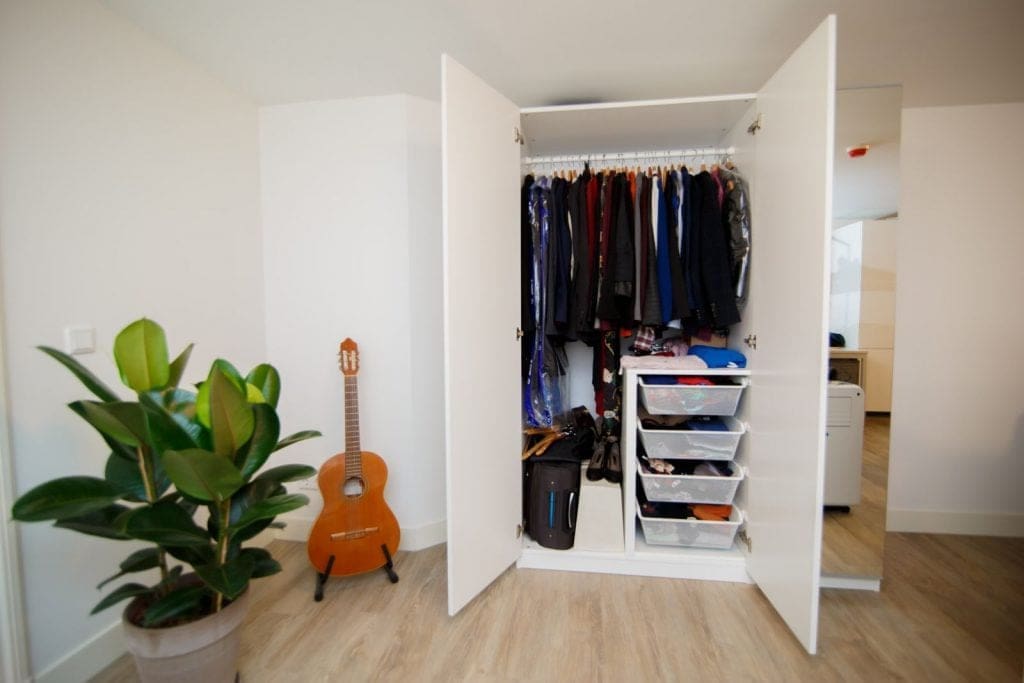
It’s no secret that clutter makes a mess in your head. “It’s the cumulative effect of being around clutter that can drain your brain and make it harder for you to focus,” says Bronwen. “The long term effects of these things include conditions like depression, fatigue and high levels of the stress hormone cortisol.”
“Cluttered spaces can attract dust, mould, and animal fur which can exacerbate allergies and asthmatic conditions. It can also cause you to produce more stress hormones and chronic, long-term stress. This has been found to be a major source of health conditions such as Type 2 Diabetes, cardiovascular events (like blocked arteries and heart attacks), strokes, and auto-immune diseases.”
BRONWEN SCIORTINO, SIMPLICITY EXPERT
With conditions like these standing in your way, your mental health begins to deteriorate, making you much less likely to deal with the clutter head-on (pun intended). Once you give up on tidying up, your body starts to give up too, leaving your mental and physical health with nothing left to lean on.
Believe It or Not, Tidying Up Pays Off
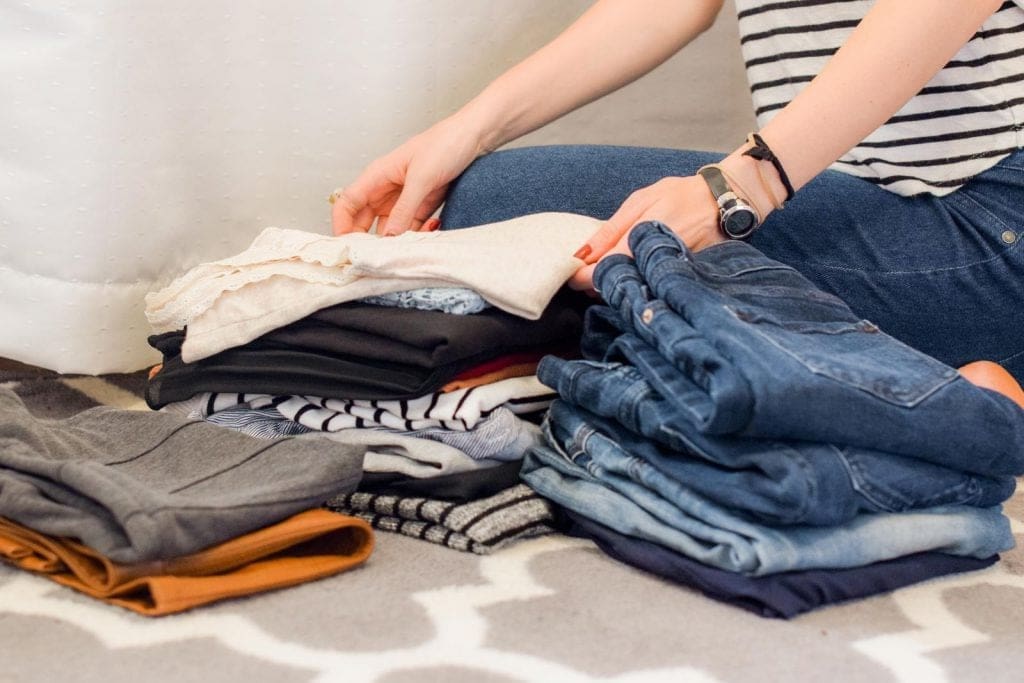
Tidying up won’t just save you from the embarrassment of inviting people round to a messy house — it’s proven to improve how you feel, too. In more ways than your house-pride.
“Seeing clutter can make it feel like the walls are closing in around you and you can start to feel like you’re “suffocating” and finding it “hard to breathe”. By decluttering, you can create a more restful and restorative environment, and – let’s face it – who couldn’t do with a bit less stress in their lives?”
BRONWEN SCIORTINO, SIMPLICITY EXPERT
According to Bronwen, “clutter reduces your working memory and impacts your ability to think clearly,” making it difficult to get things done, find what you need, or even think straight. By making some space, you can relieve your headspace and actually start to think clearly, without the headache.
So… Where To Start?
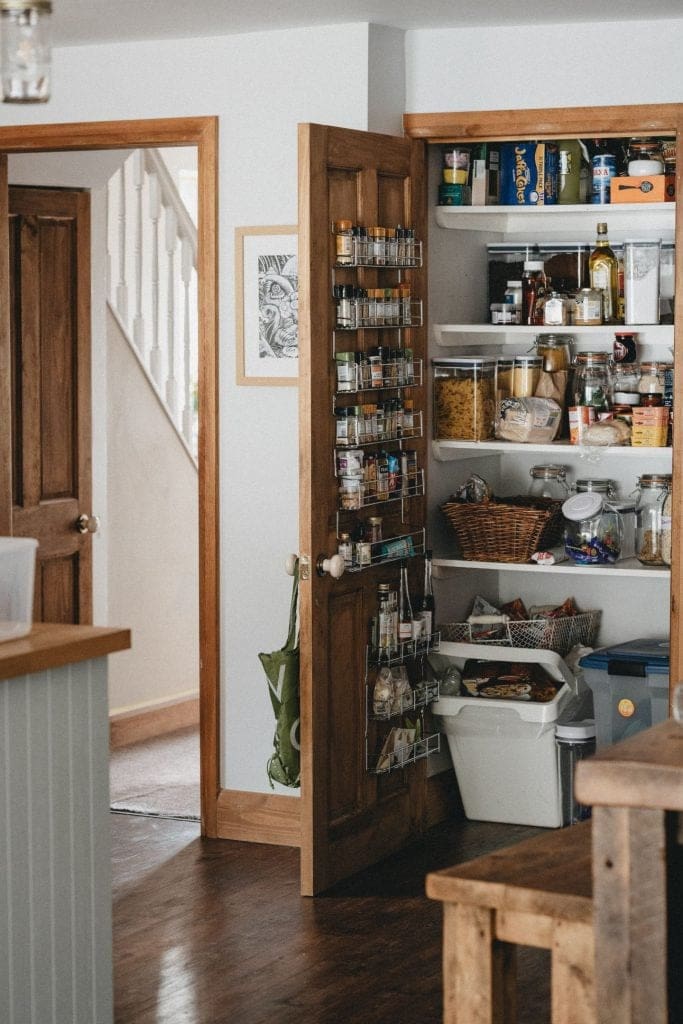
So, you’ve decided to look the clutter in the eye. Now you have to deal with it. Easier said than done, right? But you’ve shown enough initiative to read this far – congrats. Keep it up by dealing with the clutter in chunks.
Make a Game Plan
Getting started is the hardest part. Keep things achievable by making a game plan and setting a few rules of your own. That way, you can set yourself up for realistic goals, not just Pinterest goals.
Try taking a page or two out of Marie Kondo’s book, and scrap what doesn’t work for you.
The Marie Kondo’s
- Commit yourself to tidying up by imagining the lifestyle you want.
- Compare your space to the lifestyle you’re aiming for: what’s wrong with your space that you can right?
- Try taking photos of your space and marking them up with improvements: what would it look like if you got rid of X, Y, Z and replaced it with 1, 2, 3?
- Ask yourself: what sparks joy and what doesn’t? (your dustpan and dish liquid probably don’t spark joy, but that’s life).
The Marie Kondont’s
Follow the right order. Do what works for you.Tidy by category, not by location. Tidy wherever you want – if your kitchen is only a little stressful but your spare room is I-don’t-even-want-to-step-foot-in-there-stressful, start with the kitchen and finish up in the spare room.
Start Anywhere
Start with the stuff that’s impossible to ignore, as in, the stuff that’s eating up all time and space right in front of you. This might be your under-the-bed stuff, your back-of-the-fridge stuff, or your chair-that’s-no-longer-a-chair stuff, where all the laundry you’re putting off goes to die (or at least make the pile look taller).
Don’t put too much pressure on yourself. Getting one drawer sorted is an achievement in itself.
The experts (aka Bronwen) suggests keeping things simple: “Whenever you’re trying to do something differently, your success will always rely on making it as simple as possible. The less impact making the change has, the more likely you are to create a new habit.”
Adjust to Tough Love
A 2017 study found that a lot of Australians see themselves as the “recycler” of the household, or the “over-sentimentalist”. Generally, most clutter falls into these two categories – the sentimental stuff and the might-need-it-someday stuff.
Most Australians admit that their household disagreements revolve around clutter. To keep your stuff from turning into spats, you have to get real and adjust to the tough love: do you really need to keep all those old takeaway containers? Or all those cleaned out jam jars?
Let us help you keep those arguments to a minimum. You don’t have to quit being a recycler or a sentimentalist – we love that about you. You can keep the stuff, just keep it somewhere else.
Be the recycler. Stay sentimental. Keep the stuff somewhere else.
By categorising the clutter, you can figure out what you need vs. what you don’t. Then, set up 7 piles:
- Arm’s Length: Anything you need on a daily basis should be as easy access as possible.
- Cupboard: Need it on the regular but not every day? Keep it in a close-by cupboard (one you don’t need a step-ladder for).
- (Deep) Cupboard: Only need it a few times a year? Keep it in the deep cupboard. Be mindful that cramming your cupboards full is the same as sweeping things under the rug; it’s still a mess even if you can’t see it (or reach it).
- Store: If you only reach for it once a year (if that), store it. Anything sentimental but not essential also falls into this pile.
- Sell: Don’t need it but it’s still worth something? Sell it. Facebook Marketplace is your friend (except for the “friends” that ask if it’s “still available?” before leaving you on read).
- Donate: Anything you can’t sell, you should donate – take note of the donation bins in your area to speed up this step.
- Bin: Bin the stuff that you’ve loved for a little too long, aka, anything that’s lived beyond its life-span. We try to waste less, but sometimes it just has to be done.
“Get Around to It”
Once your physical space has started to clear up, your vision will too (making it much easier to get on top of everything else).
If you dive deep into your brain, there’s a dusty to-do list. You said you’d “get around to it”, right? Now’s the time to actually get around to it. “It” could be your taxes, overdue bills, replacing the showerhead… whatever you’ve been putting off.
No need to wear yourself out – getting overwhelmed is never good. Try:
- Focusing on one thing at a time
- Finishing one task in full before you move onto the next
- Rewarding yourself once something’s crossed off the list (so you keep coming back for more)
Take a Breather, We’re Here to Help Out
Getting started and making some space in your life is hard work. Sorting your things out might leave you needing short or long term storage. If you go with TAXIBOX, we can turn your stuff into space by bringing storage to you, then we’ll take it away for as long as you need.
With fully online booking and an obsession with service, we cut out the stress from booking storage, so you can get that stuff out of your life, and space back in your head.

